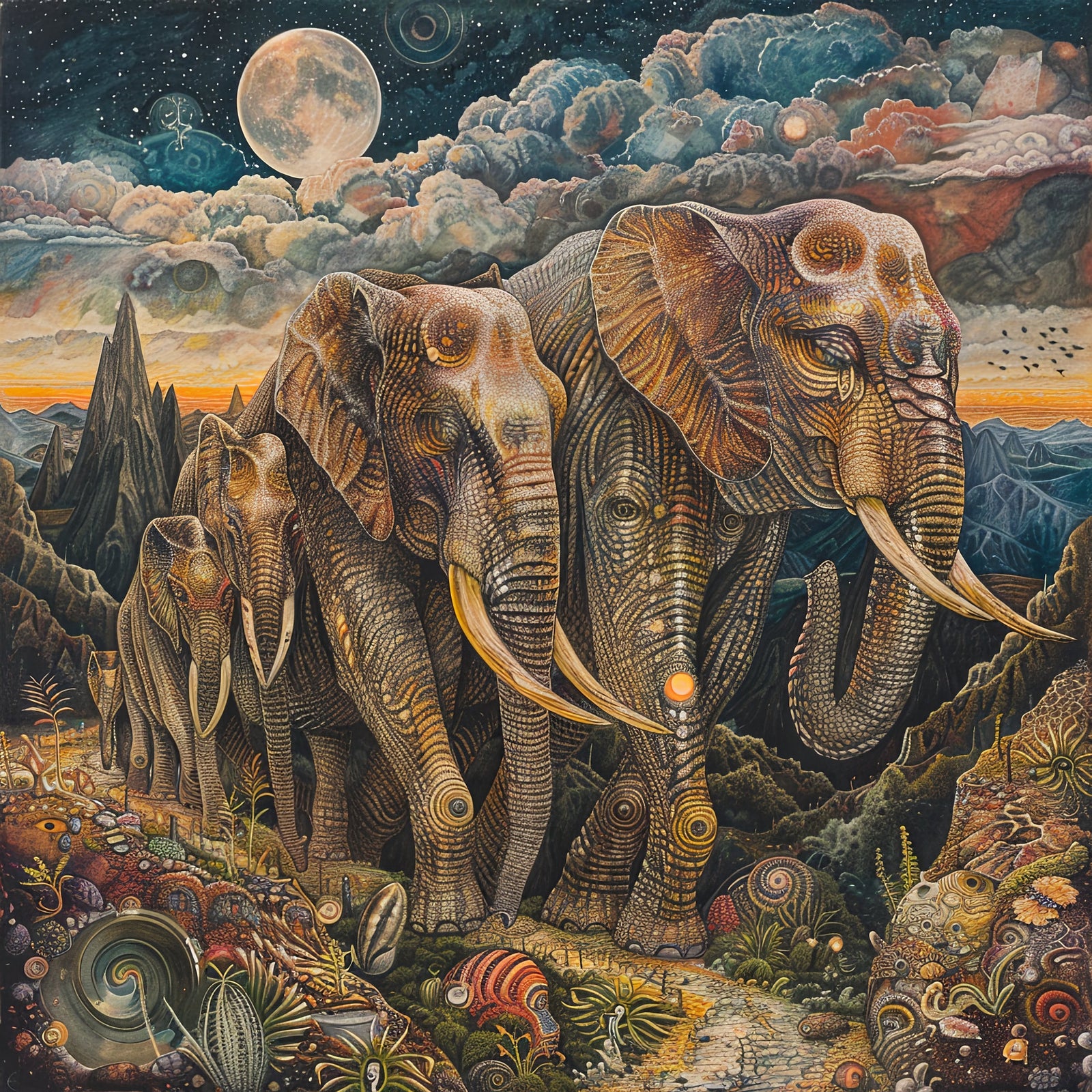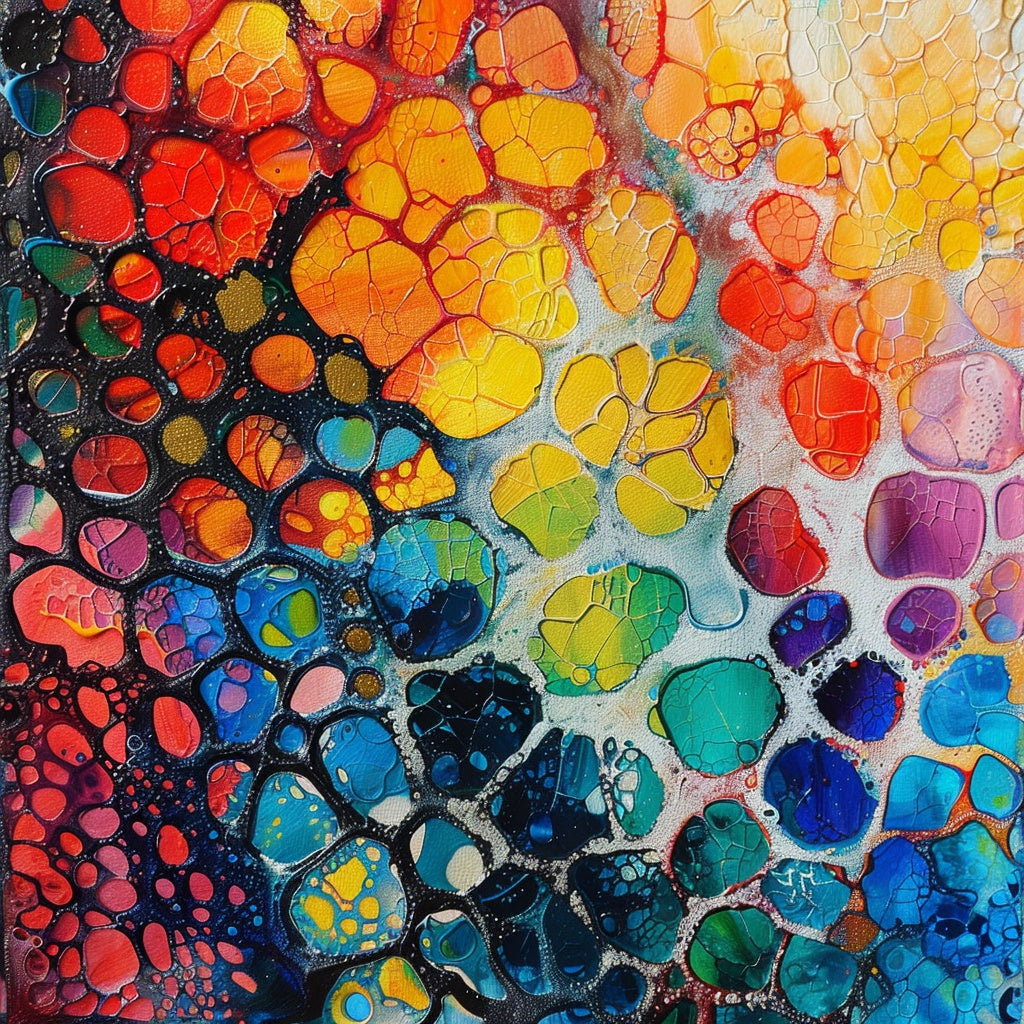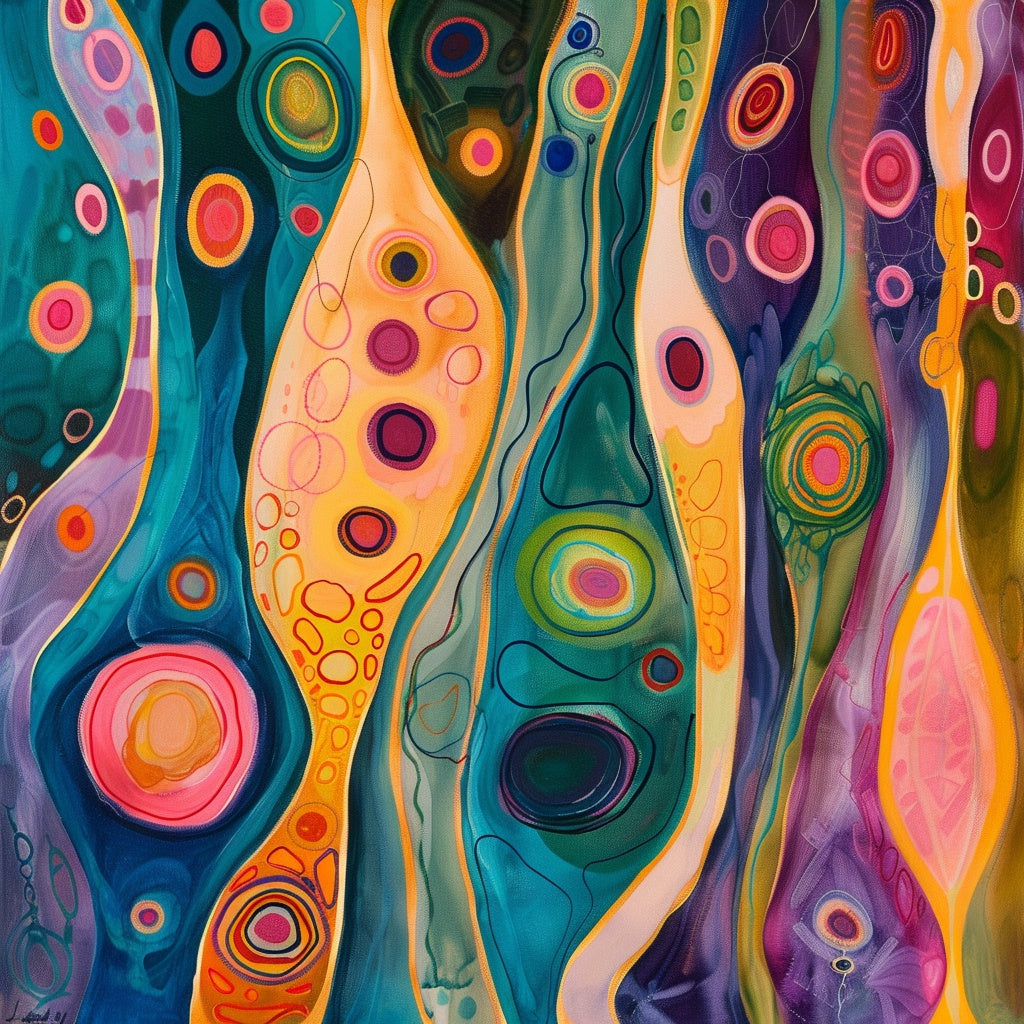How Does AI Art Affect Artists? A Comprehensive Analysis
Introduction
Artificial intelligence (AI) is rapidly redefining creative landscapes, challenging traditional notions of artistry and craftsmanship. In recent years, AI art generators have emerged as powerful tools that produce artworks rivaling those created by human hands, thus igniting debates on creativity, originality, and economic viability in the art world[1]. This blog post explores the multifaceted impact of AI on artists—ranging from innovative opportunities to significant challenges—while drawing on academic research, industry reports, and expert perspectives[2].
The growing integration of AI in art is not just a technological development but a cultural revolution. As machines begin to create compelling visual narratives, artists are compelled to reassess the value of human creativity in a digitized world[3]. This comprehensive analysis delves into the evolution of AI art, the benefits it offers, the concerns it raises, and the diverse responses from the artistic community[4].
By examining case studies such as the renowned sale of "Portrait of Edmond de Belamy" at Christie's auction house for over $432,500[1] and the creative journeys of artists who are either embracing or resisting this technology, we can understand the practical implications of AI in the creative domain[5]. This blog aims to provide a balanced view, highlighting both the potential for innovation and the inherent challenges associated with AI-generated art.
The Rise of AI in the Art World
The integration of AI into the art world has evolved rapidly over the past decade, marking a turning point in the history of artistic production. Early experiments with computer-generated art have blossomed into sophisticated algorithms capable of creating artworks that rival traditional media in both complexity and aesthetic appeal[2]. One of the landmark events that underscored this shift was the sale of an AI-generated portrait by the collective Obvious, known as "Portrait of Edmond de Belamy," which fetched a staggering $432,500 at Christie's in 2018[1].
At the heart of this evolution are advanced machine learning models such as Generative Adversarial Networks (GANs) and the DeepArt algorithm. GANs, which function through a dynamic interplay between a generator and a discriminator, have enabled machines to produce visually convincing artworks that challenge the boundaries of human creativity[2]. Meanwhile, algorithms like DeepArt analyze existing images to replicate and transform stylistic elements, further blurring the line between human-made and machine-generated art[6].
Moreover, AI is not confined solely to image generation. Its applications extend to art authentication, restoration, and even the preservation of cultural heritage. Museums and galleries are increasingly relying on AI tools to analyze stylistic nuances and detect anomalies in artworks, which can assist in verifying authenticity and predicting market trends[3]. These technological advancements have not only redefined the process of art creation but have also transformed the operational paradigms of art institutions worldwide[5].
- Key Point: AI has revolutionized art creation by introducing advanced techniques like GANs and style transfer algorithms[2]
- Key Point: Landmark events, such as the Christie's auction of AI art, have validated the technology in mainstream art markets[1]
- Key Point: AI tools are increasingly used for art authentication, restoration, and market analysis[3]
This era of AI-driven art signifies more than just technological progress; it represents a paradigm shift in how art is conceptualized, produced, and consumed. As artists and institutions explore the capabilities of these digital tools, the traditional boundaries of artistic expression continue to expand, leading to exciting yet complex new challenges for the creative community[4].
Benefits of AI Art for Artists
AI art generators have opened up unprecedented opportunities for artists by offering novel tools that enhance creative processes and streamline production workflows. One of the primary benefits is the democratization of art creation: individuals without formal training can now experiment with artistic styles and generate high-quality visuals using AI algorithms[7]. This democratization fosters inclusivity and innovation, inviting a broader range of voices into the art world[8].
For professional artists, AI provides a powerful means to generate ideas and overcome creative blocks. By analyzing vast amounts of data and historical art styles, AI tools can suggest innovative compositions and color palettes that inspire new directions in artistic expression[6]. For instance, some painters have integrated tools like DeepDream into their creative process to generate intricate patterns that later serve as the basis for traditional paintings[9].
In addition, AI can automate many time-consuming tasks associated with art production, such as color correction, pattern generation, and preliminary sketching. This automation allows artists to dedicate more time to refining their creative vision and focusing on the conceptual depth of their work[8]. Furthermore, AI’s capacity to analyze and replicate diverse artistic styles provides artists with an expanded “toolbox,” enabling them to experiment with techniques that might be outside their conventional expertise[10].
- Key Point: AI democratizes art creation, enabling both amateurs and professionals to explore new creative avenues[7]
- Key Point: Automation of repetitive tasks frees up time for artists to focus on the conceptual and expressive elements of their work[8]
- Key Point: Tools like GANs and style transfer algorithms expand the creative palette available to artists[6]
This fusion of human ingenuity with computational prowess has already resulted in groundbreaking collaborations and innovative artworks. For example, a number of contemporary artists have started using prompt-based coding and AI generative techniques to produce interactive installations and multimedia projects that push the boundaries of conventional art forms[16]. Such hybrid practices not only enrich the artistic landscape but also offer practical benefits in terms of efficiency, creative experimentation, and market adaptability[9].
As AI continues to evolve, its role as an enabler of creativity becomes increasingly evident. By augmenting human capabilities and opening up new possibilities for artistic expression, AI is positioning itself as a critical ally for artists in the 21st century[10].
Challenges and Drawbacks of AI Art
Despite the myriad benefits, the rise of AI in the art world also presents significant challenges and ethical dilemmas. One of the most pressing issues is the economic impact on traditional artists. With AI art generators capable of producing artworks quickly and at low cost, there is a growing concern that human artists may face reduced income and job displacement[11]. Critics argue that this technological shift risks undermining the unique value of human creativity and skill, leading to a devaluation of traditional artistic labor[12].
Another critical challenge pertains to copyright and intellectual property. AI algorithms are often trained on vast databases of existing artworks, raising concerns about potential copyright infringements and the ownership of AI-generated creations[7]. The legal frameworks currently in place struggle to address the complexities of AI authorship, leading to debates about who should be credited—and compensated—for AI-assisted works[13].
Furthermore, there is an ongoing discussion about the authenticity and emotional depth of AI art. Many critics assert that while AI can mimic styles and generate visually appealing images, it often lacks the underlying emotional narrative and human experience that give traditional artworks their profound impact[14]. This perceived deficiency raises questions about whether AI-generated art can truly be considered “creative” in the human sense, or if it is merely an elaborate simulation of artistic processes[15].
- Key Point: The affordability and speed of AI-generated art may lead to economic challenges and job displacement for traditional artists[11]
- Key Point: Copyright and intellectual property issues complicate the legal status of AI-generated works[13]
- Key Point: Questions about authenticity and emotional depth remain central to debates on AI art’s artistic value[14]
Additionally, the use of AI in art raises concerns about the potential for bias and ethical misuse. Since AI systems are only as unbiased as the data on which they are trained, there is a risk that these algorithms may perpetuate existing stereotypes or inadvertently reproduce harmful content[13]. In some instances, artists have even reported instances of data poisoning, where deliberate interference in training data has been used to disrupt AI art generation processes[13].
These challenges are not merely theoretical; they have real-world implications for how art is created, valued, and regulated. As stakeholders from the artistic community, legal experts, and technology developers grapple with these issues, the debate over the role of AI in art is poised to shape policy and practice for years to come[10].
Artists' Reactions and Case Studies
The response from the artistic community to the emergence of AI-generated art has been both diverse and dynamic. Some artists have enthusiastically embraced the new technology, viewing it as a tool for expanding creative horizons and pushing the boundaries of traditional art forms[16]. For example, a number of contemporary painters and digital artists have begun integrating prompt-based coding and AI-driven techniques into their workflow, thereby creating hybrid works that fuse human intuition with algorithmic precision[6].
One notable case study involves an artist who not only learned coding languages such as C# but also developed bespoke AI tools to generate novel artistic elements. This proactive approach enabled the artist to experiment with new aesthetics, ultimately leading to a unique style that garnered significant attention in online art communities[16]. Similarly, several galleries have hosted exhibitions dedicated solely to AI-generated art, fostering discussions about the evolving definition of art and the role of human intervention in creative processes[18].
Conversely, a segment of artists has expressed considerable apprehension regarding the implications of AI on their careers. Veteran digital artists, such as Greg Rutkowski, have voiced concerns that the proliferation of AI art could obscure their individual identities and diminish the market value of traditionally created works[17]. These artists argue that the overreliance on AI tools risks marginalizing the intricate human skills and emotional investments that are central to authentic artistic expression[12].
- Key Point: Many artists are integrating AI into their creative processes, resulting in innovative hybrid artworks[16]
- Key Point: Some artists are resistant to AI’s growing presence, citing concerns over devaluation of traditional craftsmanship and market saturation[17]
- Key Point: Exhibitions dedicated to AI art have spurred dialogue on the future of creative authorship and authenticity[18]
In online forums and social media platforms, heated debates continue to unfold as artists, critics, and technologists weigh in on the ethical and practical dimensions of AI in art. Some practitioners have even taken proactive measures—such as filing lawsuits against companies that use their artwork to train AI algorithms without permission—in an effort to safeguard their intellectual property rights[6]. These real-world examples highlight the complex interplay between technology, creativity, and legal rights, and underscore the urgent need for a regulatory framework that protects artists in the digital age[13].
The Future of AI Art and Its Implications
Looking ahead, the influence of AI on art is set to expand further, with profound implications for how creativity is defined and experienced. Emerging technologies such as Ai-Da—the humanoid robot artist equipped with cameras and AI algorithms—are already challenging conventional boundaries by autonomously gathering imagery and generating artworks without direct human input[19]. This trend raises fundamental questions about authorship and whether machines can be recognized as true artists in their own right[19].
Moreover, the impact of AI extends beyond the visual arts. In fields such as music, writing, video production, and even software development, AI tools are transforming creative processes and opening new avenues for interdisciplinary collaboration[20]. As these tools become more sophisticated, they promise to democratize creativity further while also posing challenges related to originality, authenticity, and the role of human ingenuity in art[20].
Several experts in the field predict that the next decade will see a convergence of traditional and digital art forms, as AI becomes an integral part of the creative toolkit. Academic researchers and industry leaders alike emphasize the need for ethical guidelines and robust regulatory frameworks to ensure that AI serves as a complement to human creativity rather than a replacement[10]. For instance, policy reflections published by cultural think tanks highlight the necessity for updated copyright laws that address the unique challenges posed by AI-generated art[10].
- Key Point: Future developments such as autonomous robot artists are set to further blur the lines between human and machine creativity[19]
- Key Point: AI’s influence is expanding into other creative fields, raising similar questions about originality and the role of the artist[20]
- Key Point: Experts call for updated legal frameworks to address issues of copyright and ethical use in the age of AI art[10]
The future of AI art is replete with both promise and uncertainty. As technology advances, artists will need to navigate a complex landscape where innovation and tradition coexist in tension. The ongoing dialogue between creators, technologists, and policymakers will be crucial in determining how AI is integrated into the art world in a way that enriches cultural expression while safeguarding the rights and livelihoods of artists[20].
Ultimately, the evolution of AI art invites us to reexamine our definitions of creativity, authorship, and artistic value. The intersection of human expression and machine intelligence presents a unique opportunity to forge new creative paradigms that can expand the boundaries of art as we know it[19].
Conclusion
The advent of AI in the art world is undeniably transformative. As this comprehensive analysis has demonstrated, AI art presents a dual-edged sword: on one hand, it offers revolutionary tools that empower artists to push creative boundaries and democratize art production; on the other, it introduces significant economic, ethical, and legal challenges that must be addressed to preserve the integrity of human creativity[1].
From the groundbreaking sale of AI-generated artworks at major auction houses to the active debates among artists over copyright and authenticity, the influence of AI is reshaping the art landscape in profound ways[3]. As the technology continues to evolve, it will be imperative for artists, institutions, and policymakers to engage in open dialogue, ensuring that the benefits of AI are harnessed responsibly while mitigating its drawbacks[12].
In the end, the true value of art lies not solely in its method of creation but in its ability to convey human experience, emotion, and perspective. As AI becomes an increasingly powerful tool in the creative process, its impact on artists will largely depend on how it is integrated into the broader cultural context and whether it is used to augment rather than replace the unique human touch that defines true artistry[14].
The conversation about AI art is just beginning. Its trajectory will likely shape the future of creative industries, prompting us all to reconsider what it means to be an artist in an era where machines can also create. The challenge for society is to embrace innovation while preserving the enduring values of human creativity and expression[15].
[1] AGI Fine Art Blog, "Art in the Age of AI: The Changing Role of Artists", accessed February 11, 2025. Link
[2] Ocoya, "Exploring the Future of AI Art Creators: A Comprehensive Guide", accessed February 11, 2025. Link
[3] Forbes, "The Impact Of Artificial Intelligence On The Art World", accessed February 11, 2025. Link
[4] Artezaar.com, "Advantages and Disadvantages of AI in the Art World", accessed February 11, 2025. Link
[5] Art.Art, "The Influence of AI in the Art World", accessed February 11, 2025. Link
[6] NYU SPS, "Embracing Creativity: How AI Can Enhance the Creative Process", accessed February 11, 2025. Link
[7] Vision Factory, "AI Art: Exploring the Pros, Cons, and Ethical Dimensions", accessed February 11, 2025. Link
[8] Grace.edu, "The Benefits and Downfalls of AI and Art: A Faculty Blog by Aaron Winey", accessed February 11, 2025. Link
[9] Artsmart.ai, "Exploring the Benefits of AI Art: Revolutionizing Creativity", accessed February 11, 2025. Link
[10] OCADU Cultural Policy Hub, "Policy Reflections: AI Generated Art Implications", accessed February 11, 2025. Link
[11] IEEE Computer Society, "AiArt: Why Some Artists Are Furious About AI-Produced Art", accessed February 11, 2025. Link
[12] Artsmart.ai, "Why AI Art is Bad: 5 Eye-Opening Insights", accessed February 11, 2025. Link
[13] Medium (By Dirk Steynberg), "The Ethical Implications of AI on Creative Professionals", accessed February 11, 2025. Link
[14] Demandwell, "AI Art Pros And Cons", accessed February 11, 2025. Link
[15] FHNtoday.com, "The Consequences of Artificial Intelligence Made Art", accessed February 11, 2025. Link
[16] Reddit, "Professional Artist Response to Generative AI: My own story regarding art as a whole.", accessed February 11, 2025. Link
[17] YouTube, "Professional Artists' Reaction to AI Art", accessed February 11, 2025. Link
[18] Pacmin Studios, "Artists Respond to AI-Generated Image Phenomenon", accessed February 11, 2025. Link
[19] Medium, "AI art isn’t just the future – it’s the end of human creativity", accessed February 11, 2025. Link
[20] SelfEmployedArtist.com, "AI is coming: Future-Proofing your Digital Art Career", accessed February 11, 2025. Link



Leave a comment (all fields required)